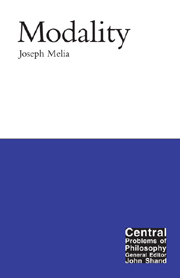4 - Modalism
Summary
Introduction
Modalism is the view that the correct expression and articulation of modal thought and talk should include primitive modal operators such as necessarily and possibly, but should not involve quantification over or reference to possible worlds or possibilia. The correct logical form of “It is possible that P” is simply ◊P. In short, modalism is the view that modal truth is not to be articulated or understood in terms of possible worlds or possibilia.
Unlike Quine, the modalist does not wish to eliminate the modal; the modalist wishes to respect our everyday thought and talk about the possible and the necessary. The modalist thinks that there is more to the world than is given by a description of what things there are, what categorical properties these things instantiate and what categorical relations these things bear to each other. But the modalist is sceptical about possible worlds: he does not accept worlds other than the actual one. The modalist accepts the objectivity of modal truth, but rejects the existence of possible objects. As such, the modalist wishes to avoid the unparsimonious and counter-intuitive ontology of possible worlds and possibilia while accommodating our intuitions about modal truth, two points very much in the modalist's favour. Nevertheless, by eschewing possible worlds, the modalist also eschews many of the advantages such an ontology brings. The modalist loses the unifying analyses of possibility, necessity, counterfactuals and the like that possible worlds provide. The modalist loses the elegant possible worlds semantics and the explanations for the failure of intensionality seen in Chapter 3.
- Type
- Chapter
- Information
- Modality , pp. 81 - 98Publisher: Acumen PublishingPrint publication year: 2003

